Professional Paths to Engaging Wholeness
A Seven-Week Online Course (Course Begins June 7th, 2018)
"Meridian University is a gift to this moment in our history. The rare breadth of the intellectual journeys it offers and its exquisite attention to the ripening of the whole person, set a stunning example for graduate studies in the time of the Great Turning. It grows new and needed disciplines of consciousness, as well as motivation to engage in the transformation of culture."
Joanna Macy, PhD, Visionary Founder of The Work that ReconnectsOur Historical Moment Requires a New Kind of Professional
We live in a time of agonizing challenges and creative disruptions that require a deeper and higher order of capability from those who choose to engage this historical moment. The challenges humanity faces are so complex that our historical epoch is sometimes described as a crisis of complexity. This is at the core of our current ecological, economic, and political turmoil. In each case, what is required of humanity is more complex than what our current capabilities support. Even our own inventions—technologies, cultural memes, and organizations—have been evolving into increasingly complex forms which have increased the demands of everyday life.
Many of us are are called to lives of sacred purpose where we seek to connect professional livelihood with personal meaning and passion. However, there is a widening gap between the challenges of complexity and our individual and collective capabilities. To realize our potential for passionate and meaningful livelihood, it is imperative that we close this gap by building a bridge of capability.
#What do Integral Practitioners do?
“Let the beauty we love be what we do.” -- Rumi
“My work is loving the world.” -- Mary Oliver
Integral practitioners foster the development and transformation of individuals, teams, organizations and social systems by empowering the whole person and the whole system. In domains such as education, business, healing, coaching, and the arts, integral practitioners bring imagination to complex challenges in the service of transforming mindsets, cultures and social systems.
Integral Practitioners catalyze development in multiple domains of professional practice through facilitating transformative learning at different levels: individuals, teams, organizations, and social systems.
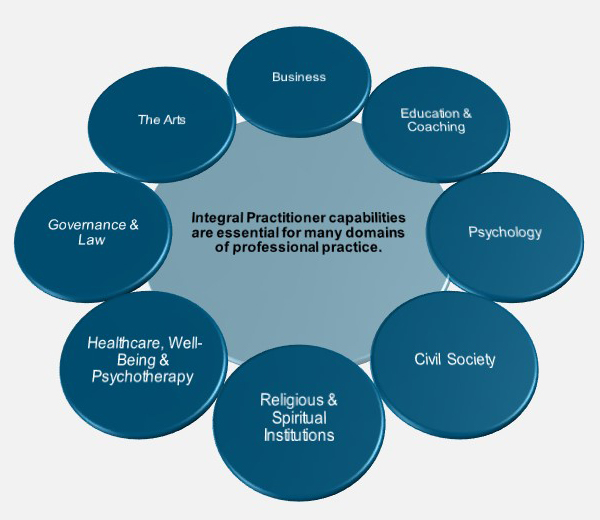
Integral practitioners make an impact by:
- Facilitating incremental, adaptive and transformative change.
- Catalyzing development through transformative learning.
- Engaging the vitality and emergence of development and evolution.
- Leading in ways that take responsibility for the whole
- Evolving new methods of creative collaboration.
- Securing the function of integrity in integral practice.
- Developing the whole person: cognitively, emotionally, somatically, and spiritually.
- Integrating action and reflection by cultivating consciousness capacities.
- Anchoring the sacred by reuniting the artistic and the scientific.
- Innovating prototypes that can be scaled while sustaining beauty and practicality.
- Inhabiting both the contemplative and the performative.
- Inquiring through both expressive and scientific methods.
- Healing division within complex systems of relationships.
About The Course
What You Will Learn
The Integral Practitioner Perspectives course offers the opportunity to identify, explore and develop a unique constellation of competencies that are required for professional impact. Participants engage in and are empowered with practices, approaches, and methods to direct their own unique evolutionary journey towards developing the capabilities required to meet complexity challenges in their domains of professional practice.
The curriculum of this course is designed to evoke, inspire, and empower participants with the capabilities required to sustain integration of vocation (our sacred calling) and profession into a meaningful whole. To sacralize is to make whole: The capability architecture of this curriculum is designed to enable engagement with professional practice as sacred purpose.
In this program you will:
- Learn to identify the ecology of competencies that most prepares you to uplevel your professional practice.
- Discover the distinct web of competencies required for realizing your unique vision of integral practice.
- Engage complexity capability in creating a life-world that is coherent enough to hold many worlds.
- Experience embodied practices that evoke the impact projects and initiatives to which you are called and collaborate with others in prototyping your practice ideas.
- Connect and collaborate with others who are engaging their call to sacred purpose.
- Explore examples of how today's unique challenges in a time of whole system transition can be more effectively traversed via specific shifts in consciousness. Identify which domains of professional practice are primary doorways for your own development.
How You Will Learn
The course is comprised of seven, 90-minute weekly video sessions, and access to an online learning platform. This platform includes lectures, scholarly articles, and provides engaging asynchronous activities with course participants. The course features:
- Live video sessions with faculty and fellow course participants each Thursday at 10 AM Pacific Time;
- Video recordings available for missed sessions;
- Online Readings and Forums;
- Take-Home Practices;
- Ongoing connection to the cohort;
- Participants from around the world;
- Senior integral practitioners as contributing faculty.
Course Modules
Week One
Appraising the Capability Gap: An Architecture for Integral Practitioner Capabilities
- To sacralize is to make whole: The capability architecture of this curriculum is designed to enable engagement with professional practice as sacred purpose.
Week Two
Self-Identity Capability: Principles
- More than any other developmental line, self-identity plays the most critical role in ensuring the sustained and transformative impact of integral practitioners. The dynamics of self-identity are central in shaping the impact we have when we lead - or when we omit leading.
Week Three
Self-Identity Capability: Practices
- Contemplative and embodiment practices are utilized to bring attention to self-identity patterns in ways that are healing and transforming, enabling more resilient collaboration in service of our individual and collective initiatives.
Week Four
Creative Inquiry Capability: Theory and Structure
- We perceive from individualized perspectives and dwell in many distinct, fragmented, and compartmentalized worlds. Conflicts arise and our worlds collide. We get trapped in mindsets of 'right and wrong' which diminish the beauty and necessity of difference.
Week Five
Creative Inquiry Capability: Practice in Context
- Supported by Creative Inquiry Capabilities, we can undertake the sacred work of sharing worlds - which is more demanding than sharing perspectives and more sustainable for collective healing, learning and awakening.
Week Six
Complexity Capability: Transforming Complex Challenges
- An integral approach to complex challenges enables the perception of patterns and engage challenges as a whole. We will explore the current complexity crisis by understanding complexity across multiple domains of professional practice.
Week Seven
Going Deeper and Next Steps
- No one can change the world alone, and the creation of a capable learning community is one of the core elements of transformative education. In this course, participants are integrated into a cohort of others with diverse personal and professional backgrounds
Course Convener
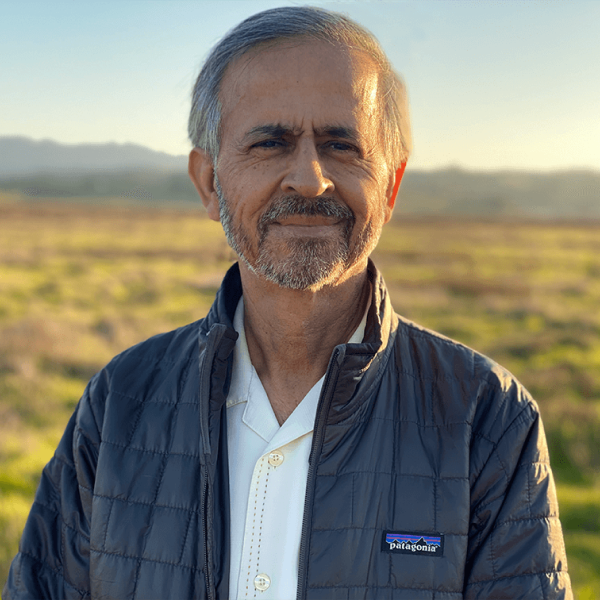
Aftab Omer
Aftab Omer, PhD is a sociologist, psychologist, futurist and the president of Meridian University. Raised in Pakistan, India, Hawaii, and Turkey, he was educated at the universities of M.I.T, Harvard and Brandeis. His publications have addressed the topics of transformative learning, cultural leadership, generative entrepreneurship and the power of imagination. His work includes assisting organizations in tapping the creative potentials of conflict, diversity, and complexity. Formerly the president of the Council for Humanistic and Transpersonal Psychologies, he is a Fellow of the International Futures Forum and the World Academy of Arts and Sciences.
Contributing Faculty
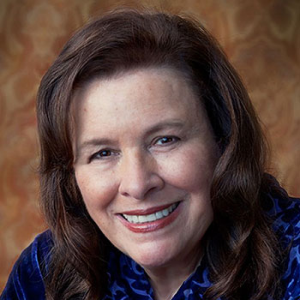
Jean Houston
Jean Houston, Chancellor of Meridian University, is a visionary researcher who has authored nearly 30 books and worked intensively in over 40 cultures, lectured in over 100 countries, and worked with major organizations such as UNICEF and NASA. Dr. Houston has developed a worldwide network of leaders including Joseph Campbell, Margaret Mead, Buckminster Fuller, Jonas Salk, US presidents Jimmy Carter and Bill Clinton, as well as US Secretary of State Hillary Clinton, giving her unique insight into the human potential. Dr. Houston's book, A Passion for the Possible, is an expansive compliment to her inspiring PBS special of the same name.
Although Dr. Jean Houston is best known for her work in human and social development and the realization of our human capacities, she is also a cultural historian and an explorer of the psychology and philosophy of history. As the “adopted” daughter of the anthropologist Margaret Mead, she was sent into the field to study the ways in which different cultures brought their own unique experience of different kinds development. “Jean, go out and harvest the human potential,” Dr. Mead directed her.
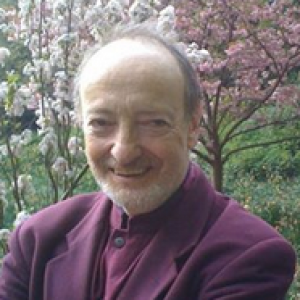
George Por
George Pór is a faculty member in the Transformative Leadership graduate program at Meridian University. He is a strategic learning partner to visionary leaders in business, government, and civil society; an evolutionary agent and Teal Mentor, facilitating vertical development in people and organizations. He is a researcher in collective intelligence, the founder of CommunityIntelligence and an online magazine and community: Enlivening Edge — News from Next-Stage Organizations.
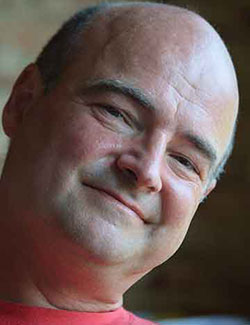
Rainer Leoprechting
Originally from Trier, Germany, Rainer now lives in Austria with the rural Obenaus Community he co-founded, where people connect with their inner and outer nature. He initiated and co-hosts the Next-Stage.World gathering for organization re-inventors, consults with leadership and project teams and develops internet matches that align the developmental context of individuals and organizations. Before that, he worked in Brussels with the European Commission from 1994 to 2012, where he founded and led an in-house consulting service. In his work, Rainer combines Art of Hosting practices, Systemic Constellation Work, Action Learning, and process consultation along with his own process innovations. He presented recently at the Integral European Conference and will be co-leading self-organizing processes for this conference again, this year.
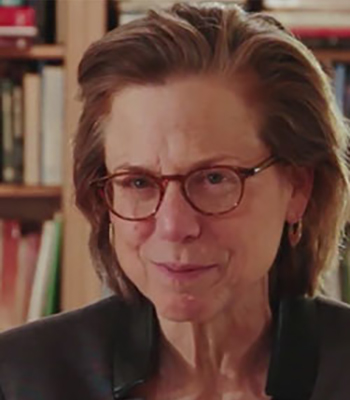
Melissa Schwartz
Melissa Schwartz, PhD is the Chief Academic Officer at Meridian University where she guides integrally-oriented programs in Education, Business, and Psychology. The Director of Meridian’s Center for Transformative Learning, Melissa is dually licensed as both a psychologist and as a Marriage and Family Therapist (MFT). She serves as a reviewer for the American Psychological Association’s Journal, Psychology of Women Quarterly, and the California Psychological Association’s Office of Professional Development. As well, she serves as a Subject Matter Expert for California’s Board of Behavioral Sciences in the continual development of the state’s MFT licensure examination. Melissa’s research interests are in the areas of adult development, the psychology of women, integral transformative assessment, and the role of culture in transformative learning.
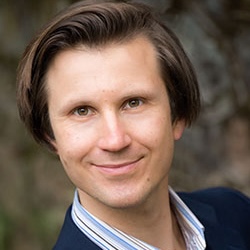
Nico Roenpagel
Nico Roenpagel, PhD, is a faculty member in the Transformative Leadership graduate program at Meridian University. Based in Berlin, he explores novel intersections of art, education, and meditation. Originally trained as an art and drama teacher in Germany, Nico completed his doctoral research at the University of New South Wales, Sydney. He is an associate of the Berlin-based non-profit Forum for Meditation & Neuroscience.
Course Details & Enrollment
Integral Practitioner Perspectives:
Professional Paths to Engaging Wholeness
Course Structure
- 7-week online course from June 7 – July 19, 2018
- Live 90-minute sessions with faculty held every Thursday at 10:00 a.m. Pacific Time (1:00 PM Eastern U.S, 6:00 PM London, 7:00 PM Central European)
- Content and collaboration via Meridian's social learning platform
- $270.00
Accreditation
Meridian University is accredited by the Western Association of Schools and Colleges (WASC) - a higher education accreditor recognized by the United States Department of Education. WASC is also the accreditor for Stanford University, UCLA, and the University of California at Berkeley.
Frequently Asked Questions
Meridian’s online courses are conducted via the University's own learning platform.
Our online courses promote community learning, through strong interactive engagement with fellow students and faculty as well as live video sessions with faculty.
You will need an email account, a high-speed internet connection, and access to a computer, iOS or Android device.
If you are planning to attend the course video calls live, you will need a webcam and microphone for your device. (Course video calls are conducted with participants video-enabled.)
Live 75-min video sessions with faculty and fellow students will be conducted throughout the course. Each week's live video call will be recorded and posted on the course platform.
Video presentations, readings, discussions and learning activities will be accessible asynchronously and may be completed on participants' own schedule. Course resources and recordings will remain available up to 30 days after the close of the course.
Full refunds are available until two (2) days before the course begins, by request via email.
You do not need to apply to a Meridian graduate degree program to take this online course. This course is one of Meridian’s open-enrollment courses
The course support team will be available to assist from start to finish. Please send your questions/requests/issues to openenrollment@meridianuniversity.edu
Convening faculty generally lead each live session. Contributing faculty typically contribute in one of the live course sessions. Course resources address the work of both convening and contributing faculty.
Meridian has institutional and federal financial aid options for our graduate degree programs. This open enrollment course does not have financial aid or payment plans available.